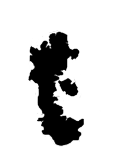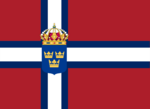Duchy of Dondora
Duchy of Dondora | |
|---|---|
|
Flag | |
 | |
| Capital | Hasbjerg |
| National Language | Danish, English |
| Ethnic groups |
|
| Demonym(s) | Dondorian |
| Government | Duchy |
• King | King Sebastian |
| Population | |
• Census | 420,299 |
| Currency | Dondorian Dollar (DD) |
The Duchy of Dondora is a country situated on the Jutland Peninsula, bordering Germany to the south. The Duchy of Dondora, as it is now known, is a constitutional monarchy with a parliamentary system of government, with a hereditary duke as its head of state. The country's landscape is primarily consist of flat terrain, with some rolling hills in certain areas. Its climate is be temperate, with mild summers and cool winters. The Duchy of Dondora's economy depends mainly on agriculture, particularly dairy farming, and the manufacturing industry. The country's culture is be heavily influenced by its Scandinavian heritage.
History
The Duchy of Dondora was founded in 1745 after declaring independence from the Holy Roman Empire. After declaring independence, the Duchy of Dondora took control of Schleswig-Holstein, and began establishing themselves as a soverign country. The Holy Roman Empire attempted to re-annex them, however it faced more internal conflicts, leaving the Duchy of Dondora to it's own devices. Soon, the Kingdom of Prussia would seek colonial expansion, and would invade the city of Copenhagen and launch an attack on the Dutchy of Dondora in the process. That battle would be known as the Battle of Copenhagen.
The Battle of Copenhagen took place in 1789 between the Kingdom of East Prussia and the Duchy of Dondora. At the time, both nations were seeking to expand their territories and tensions were high between them. The Dondorian army, led by skilled commanders, had prepared for a potential conflict and had put in place innovative tactics and strategies to fend off the invading forces.
However, the East Prussian army launched a surprise attack, quickly gaining the upper hand and forcing the Dondorian army to retreat. Despite their valiant efforts, the Dondorian army was ultimately unable to withstand the superior military might of the East Prussian forces, resulting in a significant defeat for the Duchy of Dondora.
In the aftermath of the battle, the Dondorian people were left reeling, as they struggled to recover from the loss of life and resources. The defeat had a significant impact on the political and economic stability of the Duchy of Dondora, as they worked to rebuild and regain their strength in the wake of the conflict.
Despite the challenges they faced, the people of Dondora remained resilient and determined to overcome the obstacles that lay ahead. The Dondorian army began to focus on modernizing and improving their military tactics, while the people worked to rebuild their infrastructure and economy.
Over the past decade, the Duchy of Dondora has made significant strides in recovering from the devastating defeat at the Battle of Copenhagen. Through hard work, determination, and innovation, they have established themselves as a regional power, respected and feared by their neighbors.
The lessons learned from the Battle of Copenhagen have been invaluable, shaping the military and political strategies of the Duchy of Dondora for years to come. Despite the scars left by the conflict, the people of Dondora have emerged stronger, more united, and more determined than ever to defend their land and their way of life.
